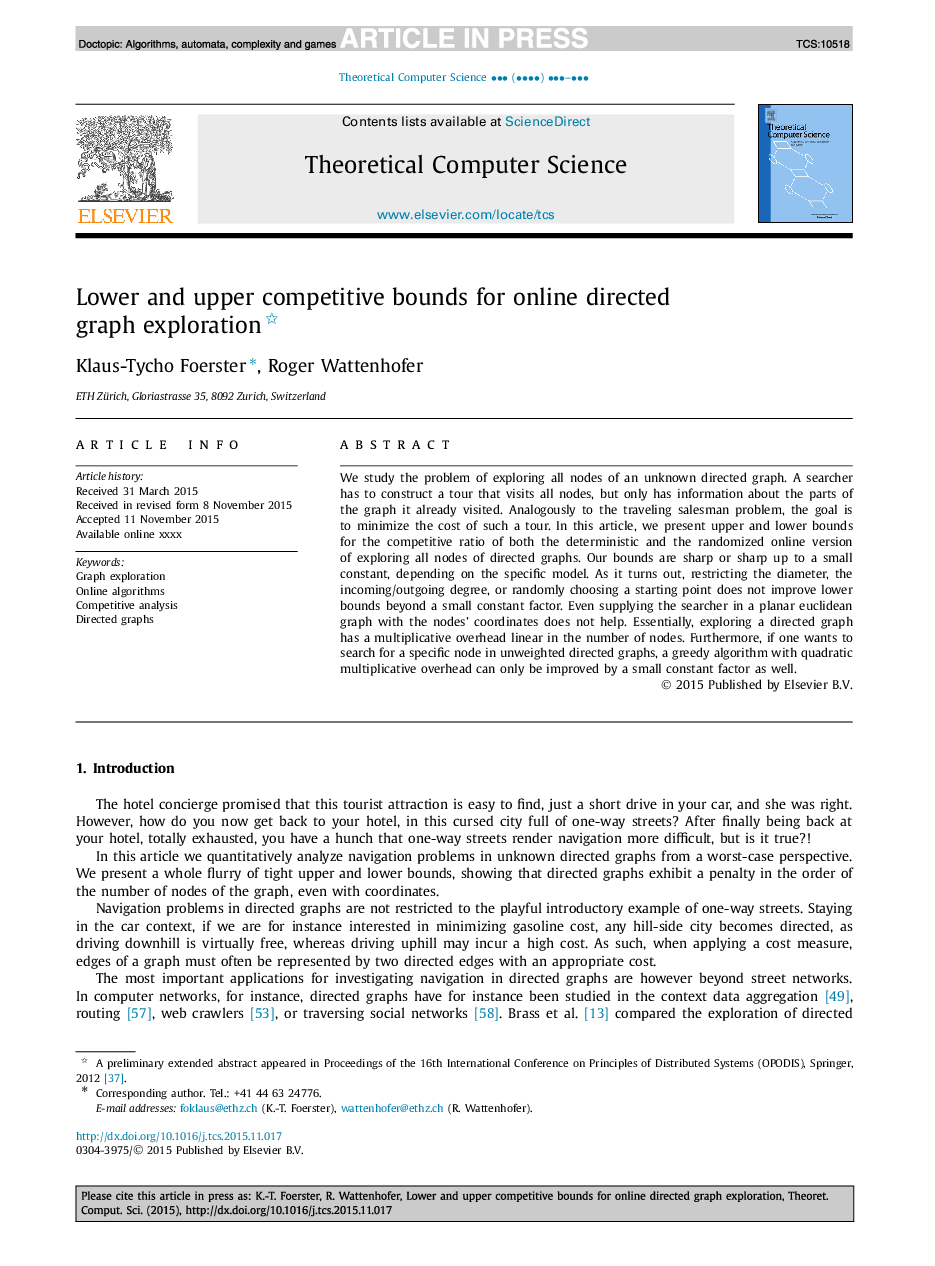| Article ID | Journal | Published Year | Pages | File Type |
|---|---|---|---|---|
| 4952409 | Theoretical Computer Science | 2016 | 15 Pages |
Abstract
We study the problem of exploring all nodes of an unknown directed graph. A searcher has to construct a tour that visits all nodes, but only has information about the parts of the graph it already visited. Analogously to the traveling salesman problem, the goal is to minimize the cost of such a tour. In this article, we present upper and lower bounds for the competitive ratio of both the deterministic and the randomized online version of exploring all nodes of directed graphs. Our bounds are sharp or sharp up to a small constant, depending on the specific model. As it turns out, restricting the diameter, the incoming/outgoing degree, or randomly choosing a starting point does not improve lower bounds beyond a small constant factor. Even supplying the searcher in a planar euclidean graph with the nodes' coordinates does not help. Essentially, exploring a directed graph has a multiplicative overhead linear in the number of nodes. Furthermore, if one wants to search for a specific node in unweighted directed graphs, a greedy algorithm with quadratic multiplicative overhead can only be improved by a small constant factor as well.
Related Topics
Physical Sciences and Engineering
Computer Science
Computational Theory and Mathematics
Authors
Klaus-Tycho Foerster, Roger Wattenhofer,
